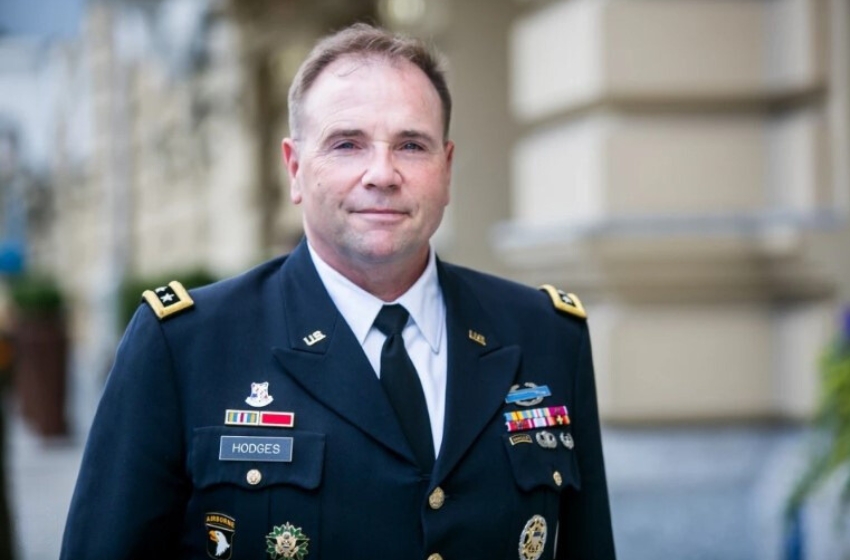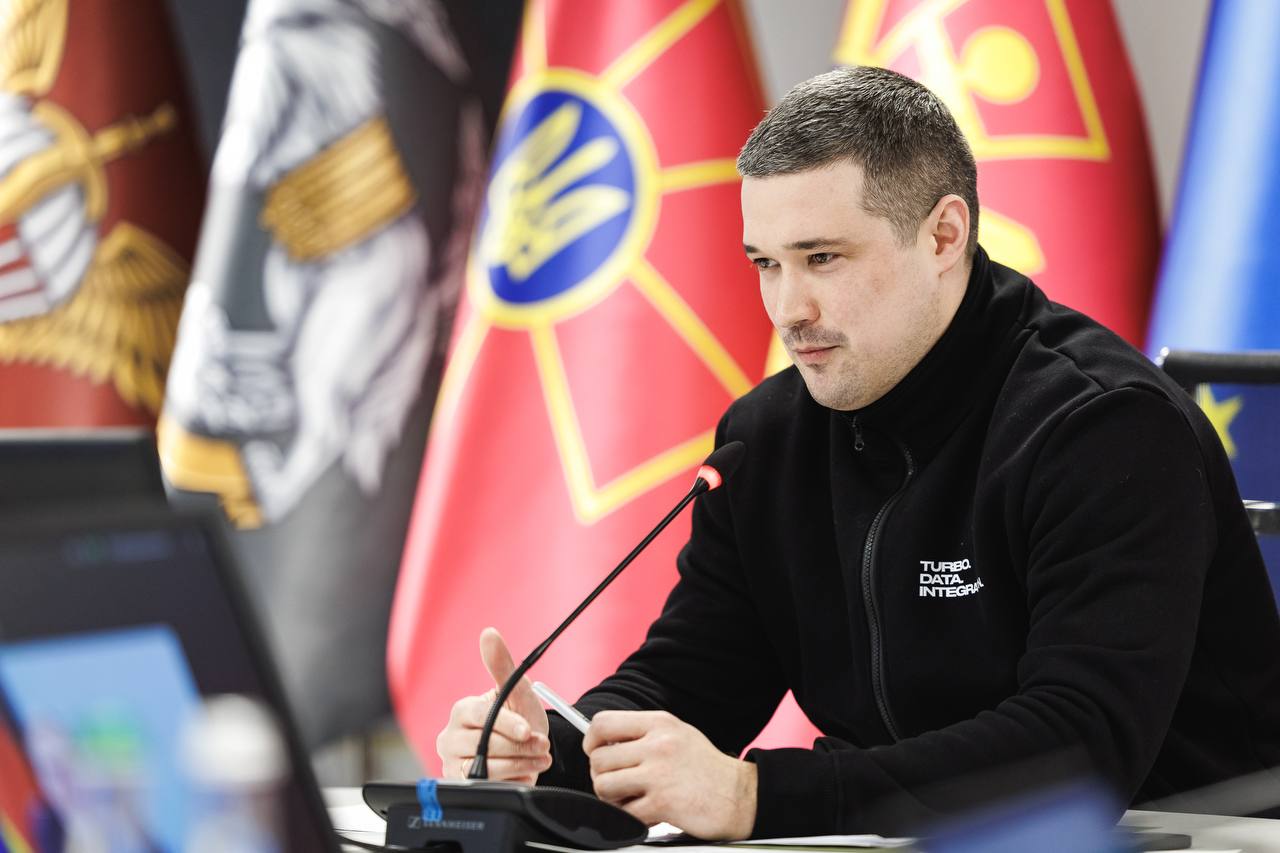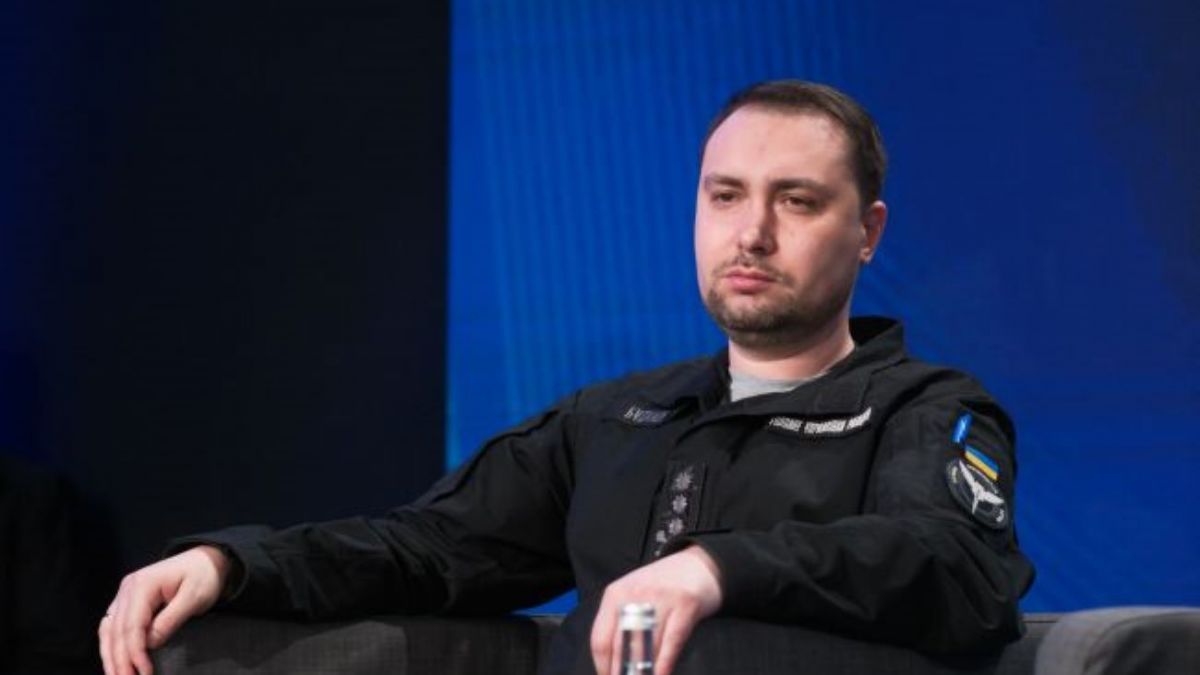The Ukrainian offensive that began on August 6 in Kursk was a surprise to Russia, which did not even consider that Kyiv might dare to attack so close to the border with Belarus, says former U.S. Army Europe Commander Ben Hodges in an interview with LRT.lt. However, he emphasizes that it will take another week to assess the true results of this offensive.
As one reason for the success of the Ukrainian attack, the retired general highlights corruption at the border, where different agencies do not share information and aim to maintain their own influence.
Another reason for the successful offensive is Russia's belief that such a thing simply could not happen.
"The Russian General Staff saw something and knew something, but it did not align with their perception of the situation; they could not believe that Ukraine could actually do this," emphasizes Hodges.
– What do you think Ukraine aims to achieve by attacking Kursk? Do you believe President Volodymyr Zelensky’s claims that a buffer zone is being established in Kursk?
– We do not have the right to know all the details of Ukraine's counteroffensive in Kursk. The Ukrainian General Staff and government have very effectively, professionally, and disciplinedly protected their information, which allowed them to surprise not only the West but also Russia. They executed what is known as operational security very well.
What I will say about this Ukrainian operation is based on my professional assessment. Clearly, one of the objectives was to partially create a buffer zone, which I would call an advanced foothold on the Russian side. The Ukrainians wanted to prevent Russia from having access to a large area from which it could conduct attacks. Whether it’s drones or ground forces, the Ukrainians have now pushed this back.
The Ukrainians can now more effectively attack Russia’s oil and gas infrastructure: they have already seized the Sudzha gas node and have approached the Kursk nuclear power plant. Kyiv is now disrupting transport infrastructure in the region, and at the same time, they will be able to move their long-range weapons systems closer to Russia, enabling strikes on airfields and other targets deeper within the country. Kursk is more than just a buffer; it opens up more opportunities for the Ukrainians.
– The Ukrainian General Staff and government have very effectively, professionally, and disciplinedly protected their information, allowing them to surprise not only the West but also Russia.
– I don’t know how long the Ukrainians plan to stay there, as it will depend on their ultimate goal. It is considered that one objective was to divert Russian forces from other locations, perhaps in eastern Ukraine. If the Russians do indeed pull back their forces, it will likely take at least another week to see the impact of the Kursk offensive. On the Russian side, there is a very confusing command and control system that includes the FSB, the Russian General Staff, the Rosgvardia, border forces, and other units. They dislike each other and do not cooperate; for example, the General Staff is reluctant to assist the FSB. This highlights the Ukrainian advantage, as the Russians lack a coherent command and control system, which is one reason why Moscow’s response to the Kursk offensive has not been effective.
Of course, there is also a psychological component; it has changed the status quo and altered the narrative that "Russia will inevitably win," which also boosts Ukrainian morale. Two weeks have passed so far, so in my opinion, it is still early to draw any major conclusions.
– During the Kursk offensive, one of the most surprising aspects was how easily the Ukrainians crossed the border. How can we assess Russia’s readiness? Did Moscow underestimate the possibility that the Ukrainians could not only defend themselves but also attack Russia?
There are several factors. First, the Russians were unprepared. I spoke with someone who had just driven through the Kursk border area, and they said they saw pathetic "dragon's teeth" and barbed wire on the Russian side, and nothing else. Obstacles are meaningless if there are no people behind them; otherwise, they can be easily pushed aside, which is what the Ukrainians did. The Ukrainians chose a location that was poorly defended. When looking at the map of this northern region, with Kursk, Kharkiv, and the Belarusian border, the Russians thought it was an area that the Ukrainians would never attack.
– When looking at this northern region on the map, with Kursk, Kharkiv, and the Belarusian border, the Russians thought it was an area that the Ukrainians would never attack.
– This highlights why it is so important to protect information, as it is part of the deception. There have been instances in American history where we were surprised, such as at Pearl Harbor, the German offensive in December 1944, or during the Vietnam War. In all these cases, there were signs that the enemy—the Japanese, Germans, or North Vietnamese—was planning something, but we did not expect it because it did not match our perception of the situation. In this case, I believe the Russian General Staff saw something and knew something, but it did not align with their perception of the situation; they could not believe that Ukraine could actually do this. That’s why operational security is so crucial, so that the enemy cannot piece together what they see and know and say, "Oh, damn, they’re going to attack us soon."
Additionally, in this part of the world, border forces are typically the most corrupt, as they are involved in smuggling and transporting goods back and forth. Consequently, different Russian agencies want to contribute to border protection while simultaneously disliking each other and not sharing information, not helping one another. I think this further reveals how we underestimate Ukraine and overestimate Russia.
– From a military perspective, given the current situation, does Ukraine have the capacity to maintain control over the captured areas in the Kursk region?
Most people in the West, including in the United States and Germany, consistently underestimate Ukraine’s capabilities and overestimate Russia’s. The Ukrainians reminded us of this again in Kursk. Regardless of what we think, the Ukrainians are likely capable of doing this for longer and better than we assume.
The Ukrainians know the Russians, understand the region, and have a better grasp of the geography and demographic situation than any of us. I believe they have already gone through the assessment process and know what they want to achieve, how long they can hold on, and what resources they have. So far, they have done quite well, and we will learn more in a week.
– NATO has always emphasized its support and assistance to Ukraine in its offensive, but the Kursk offensive stood out because the West claims to have been unaware of such Ukrainian plans. Ukrainian soldiers did not know until the last days that they would be attacking Russia; they thought they were on exercises. How do you view such a high level of secrecy even from close allies whose weapons are used in the offensive?
– Perhaps it was the only way they could carry out this “surprise”—by concentrating so many forces at the border and starting the offensive. If they had talked and informed everyone, including the U.S. government, the German government, or the Polish government, if all the soldiers had known about it, the Russians would have known as well.
That’s what I meant at the beginning of our conversation when I said that it was a very professional, very competent, very effective, and disciplined job. That’s how a mission and soldiers are protected by ensuring that the enemy never knows what you are planning and thinking.
If they had talked and informed everyone, including the U.S. government, the German government, or the Polish government, if all the soldiers had known about it, the Russians would have known as well.
– In one of your interviews after the Ukrainian attack in Kursk, you mentioned that the use of conscripts by the Russians in this area indicates that Moscow is already short on troops. Do you think it is realistic for Russia to declare mobilization?
– I think it is a very real possibility (…). We previously mistakenly believed that Russia had endless human resources. That’s not true. It’s clear that for more than two years now, they have been avoiding taking men from Moscow or St. Petersburg because they don’t want funerals in these two major cities. Chechens talk a lot; Ukrainians call them the “TikTok” army because they are always seen in videos but almost never actually fight.
Russians continue to recruit people from remote regions of Russia, but they are approaching the point where they will have to start recruiting or mobilizing young men from Moscow and St. Petersburg. Since there will be no other option, young men’s funerals will inevitably come to the streets of these cities as well, as they will undoubtedly also die in combat.
– Let's return to the situation on the Ukrainian battlefield. Although we talk a lot and discuss the situation in Kursk, we can see that the situation in Donbas remains complicated. One of the hottest spots now is Pokrovsk, towards which Russian forces are advancing. Some analysts have even suggested that the Kursk offensive was intended to divert Russian forces not only from Sumy but also from Donbas. Do you think the situation in Donbas is very dire?
– I think we in the West worry more about Pokrovsk, which almost no one knew about a few days ago, than the Ukrainians do (...). People are very concerned about what is happening in Pokrovsk. Nobody knows where it is, but everyone is worried about it. Pokrovsk is 10 percent of the eastern part of the country. After more than ten years of fighting, the Russians only have an advantage here. Remember, in February the Russians finally took Avdiivka. The distance from Avdiivka to Pokrovsk is 60 km. In six months, since February, the Russians have not been able to cover even 60 km; they are still more than ten kilometers away from Pokrovsk. Every day they try to get closer to this town but lose almost a thousand soldiers. People worry, “Oh my God, the Russians are achieving victories,” but if they see the map, they should understand that it’s just not as dire as it seems.
In Kursk, by starting their counteroffensive and “clearing” this territory, the Ukrainians are preventing the Russians from attacking the Sumy region again and are posing an even greater threat to Russia’s oil and gas infrastructure. It is very complicated to expect that some of the Russians will be sent from Donbas to Kursk. If you draw a straight line from Pokrovsk to Sudzha, it is about 550 km. Of course, the Russians cannot travel the shortest route because they would have to go through Ukrainian territory; they would have to pass through Kharkiv, so such a route is impossible. If they intend to move any of their troops from Donbas to Kursk, they will have to choose a much longer route that bypasses Ukraine. To move thousands of troops to make a difference, hundreds of trucks or train cars would be needed; the Russians have not yet started any preparations for that. I think if you look at the map and distances when we talk about troop redeployment and remember that the Russians have not covered even 60 kilometers towards Pokrovsk since February but have lost thousands of soldiers, you will see the situation differently.
– You often discuss the importance of Crimea to the Russians in your interviews and have repeatedly emphasized how crucial it is for Ukrainians to target the peninsula from which Russia attacks Ukrainian cities. Do you think we will see significant Ukrainian operations in Crimea, such as attacks on the Kerch Bridge, in the near future?
**– I believe that Ukrainians will continue to strike at airfields, ports, and other targets in Crimea to make the peninsula a problem for Russian forces. Crimea is, in my opinion, still a critical location in this war. I mean, it is a key area, but Ukrainians do not intend to simply attack Crimea and suffer huge losses; they don’t need that. To liberate Crimea, they need to make it indefensible, which means making it so that the Russians cannot use it. The Russian Black Sea Fleet is already leaving Crimea, and it is becoming increasingly difficult for the Russian Air Force to stay there. I think we will see more and more attacks.
Ukraine has also isolated Crimea by destroying ferries and other types of ships necessary for transporting people, equipment, and supplies back and forth across the Sea of Azov. They plan to destroy that large bridge (the Kerch Bridge) when they are ready. The bridge will be demolished, and it will be a significant operation. It won’t be enough to use just a handful of ATACMS; it will require a lot of explosives, and it will be a complex operation. Destroying the bridge is not something that can be attempted every week, so I think they will blow it up when the right time comes.
Now Ukrainians will continue to attack airfields, oil and gas infrastructure within Russian territory, and will keep applying pressure on Russia’s command and control systems and the Russian government. Ukrainians are currently conducting multi-layered operations simultaneously.



















